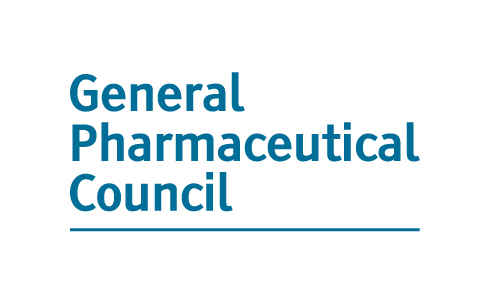Why Pharmacists Need the Care They Give to Others
.png/fit-in/700x9999/filters:no_upscale())
The RPS Mental Health and Wellbeing Survey 2020
The goal of the 2019 survey was to get a clearer picture of the mental health and wellbeing of pharmacists nationwide, helping the RPS inform their policy and develop much needed charity support. Using the findings to develop a strategy to support pharmacists and their teams, a second mental health and wellbeing survey followed in 2020 (also in collaboration with Pharmacist Support), shedding even more light on the issues – to raise awareness and ensure pharmacists continue to get their needs met.
Who took part?
Representing pharmacists across the country, a total of 959 responses were received – from a variety of ages, races and regions.
The demographic breakdown:
- The majority of respondents (64%) were aged between 30 and 59 years old
- The majority of respondents (75%) were white, while 23% of the sample represented ethnic minority groups
- The majority of respondents (73%) were female*
- Over half of respondents worked in community practice, and a fifth worked in hospital, with representation from England (76%), Scotland (15%) and Wales (8%).
* Data on protected characteristics was collected, however these questions were optional, and so totals do not equal the total number of overall respondents.
The stress factors
Results for the 2020 survey suggest the mental health and wellbeing of pharmacists is at best adequate, with the following factors at play...
Overall mental health & wellbeing
We're all familiar with what the term ‘fine' can often really mean – not fine at all. So 40% of respondents stating their mental health and wellbeing had been just ‘okay' in the past year leaves a lot to be desired, and a third of them stating it was ‘not good' even more so. The mental health and wellbeing of those working in general practice appeared to be better than those practicing in community or hospital - suggesting that ‘area of pharmacy practice' may influence mental health and wellbeing.
The impact of Covid-19
With reduced face-to-face GP services increasing the demand for pharmacy services, the Covid-19 pandemic has only intensified an already challenging situation. Almost a third of respondents believe Covid-19 had a significant impact on their mental health and wellbeing; and while not all felt the pandemic had a notable effect, over half (54%) felt it did have some impact. This is supported by evidence from the Office for National Statistics (2020), which showed an increase in the proportion of working adults, particularly key workers, experiencing some form mental health condition during the Covid-19 pandemic.
Workplace woes
From inadequate staffing and long working hours, to lack of work-life balance, a colossal 72% of respondents stated work had negatively impacted their mental health and wellbeing. These findings are consistent with those from the 2019 survey, which found the primary reasons for poor mental health to be similar; suggesting that while the pandemic may have worsened things, it's likely that these factors already existed and are continuing to negatively affect the mental health and wellbeing of the pharmacy profession.
With over 440 comments received from respondents on this topic, key themes emerged and their voices were heard:
“Expectations are overwhelming … funding is non-existent and staffing levels are appalling. Combine that with the Covid-19 pandemic and you have the perfect recipe for a mental breakdown”.
A risk of burnout
Often self-diagnosed and referenced casually by the ‘hustle' sub-section of society, burnout is a psychological syndrome with serious health implications. Major factors affecting the day-to-day wellbeing of pharmacists have been closely linked to burnout, including lack of work enjoyment, frequency of sick leave, making mistakes at work and workforce retention.
The Oldenburg Burnout Inventory, a standardised tool for measuring burnout in healthcare professionals, found that a staggering 89% of survey respondents were at high risk of burnout. It's easy to see why when you take a closer look at the findings – for instance, a third of respondents wanted to take time off work but felt unable to, and the majority of them worried, a lot, including thoughts on how their mental health and wellbeing impacted the quality of service they offered.
Left unchecked, the impact of burnout will likely worsen, leaving some so overwhelmed they simply wouldn't have the energy to devote to a given task, activity… or career. With two thirds of respondents considering leaving their job in the past year or leaving the pharmacy profession entirely, it's clear that pharmacists are lacking the support they so often provide to others.
Making support accessible
Some respondents know about the mental health and wellbeing support available to them (66%), but not many have used these services (14%) – with reasons ranging from concerns around confidentiality, the stigma associated with mental health issues and current support not addressing the root cause of poor mental health and wellbeing.
Results suggest that by employers offering helpline services and talking therapies – in addition to good practice through supportive line managers, cohesive teams and funded training – pharmacists may feel comfortable enough to start exploring and tackling their mental health issues.
As Covid-19 continues to impact the health system and wider society, the survey results highlight a clear need to develop strategies that address underlying workplace issues, raise awareness of mental health, get to the core of support accessibility, reflect the diversity of the workforce and resolve issues around confidentiality – so pharmacists can begin to feel both appreciated and protected.

)
)
)
)
)
)
)

.png/fit-in/500x500/filters:no_upscale())
)
)
)
)
)
)
)
)
)
)
)
)
)
)
)
)
)
)
)
)
)
)
)
)
)
)
)
)
)
)
)
)
)
.png/fit-in/1280x9999/filters:no_upscale())
)
)
)
)
)
)
)
)

